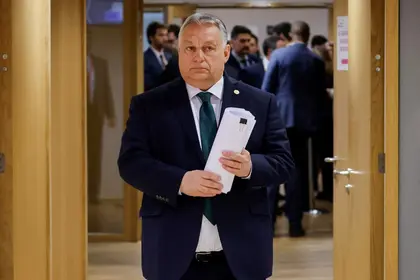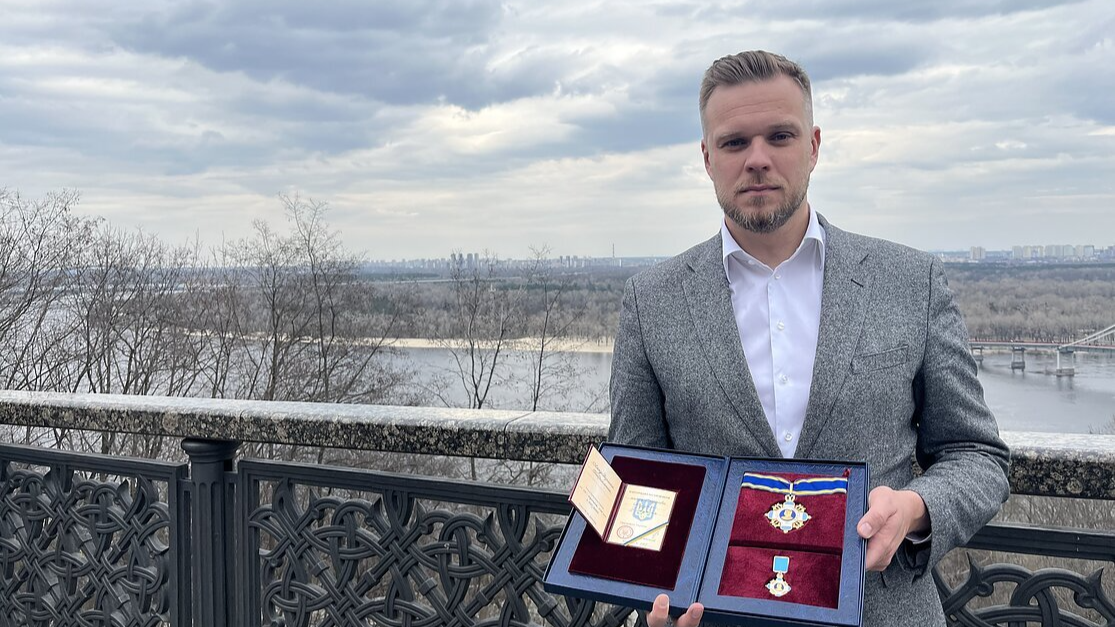It took months of negotiations and headaches, €10 billion in funds released to Budapest, fancy lunches with French and Italian politicians, threats to kick Hungary out of the union, and then concessions to annually review military assistance to Kyiv for Hungarian Prime Minister Viktor Orban finally to agree to the €50 billion EU aid package to Ukraine.
Now, weary European leaders are letting him have it.
JOIN US ON TELEGRAM
Follow our coverage of the war on the @Kyivpost_official.
“There’s no problem with so-called Ukraine fatigue,” Polish Prime Minister Donald Tusk said after this week’s EU summit. “We have Orban fatigue now here in Brussels.”
Bloc members accused the Hungarian populist prime minister (Moscow’s only real ally in the EU, and who had opposed talks of Ukraine’s membership in it) of blackmailing Brussels into releasing half of the €20 billion in frozen assets that were being held until Budapest cleaned up its record on corruption and LBGQT rights.
“I can’t understand, I can’t accept this very strange, this very egoistic game of Viktor Orban,” Tusk continued. “It is up to Orban to decide whether Hungary is a part of our community or not. And it’s clear, it’s black-and-white.”
“This position for Viktor Orban [on Ukraine], this is a threat to our security. It’s so obvious,” the Polish leader concluded.
‼️‼️
— Daniel Freund (@daniel_freund) February 1, 2024
Donald Tusk slams Viktor Orban in 5 statements:
- "Orban fatigue"
- "security risk"
- "Orban decides if he's in our out"
- "egoistic game"
- "if Orbans position dominates, Ukraine will lose the war"
Some things in the Council have changed very much indeed. pic.twitter.com/NcAur7BCiz
Tusk and other European leaders more or less had kept their frustration with Orban in check until the ink was dry on the Ukraine-aid deal. Moreover, French and Italian leaders were reportedly schmoozing with him for months to bring him on board.

How Poland’s Trade with Russia Undermines EU Sanctions and Support for Ukraine
Politico reported that Italian Prime Minister Giorgia Meloni (a fellow right-wing populist) had been “wining and dining” Orban since last fall, most recently hosting him at the upscale “Hotel Amigo” in Brussels for a prolonged chat.
French President Emmanuel Macron also invited the Hungarian hold-out to a déjeuner raffiné at the Elysée in Paris to discuss his “vision.”
Viktor definitely wants to be the center of attention
Following such encounters there seemed to be a rapprochement with Brussels, one diplomat told The Guardian, and then as soon as Orban was back in Budapest, the stonewalling would begin again. “I’m starting to wonder whether the Hungarian word for ‘no’ sounds like ‘yes’ in English,” the European diplomat said.
Estonian Prime Minister Kaja Kallas, a staunch Kyiv ally, also noticed the pattern and vented some spleen after the summit.
“Viktor definitely wants to be the center of attention every time we are here, but it shouldn’t be like this,” Kallas said.
Aside from the €10 billion in “ransom money”, as it was described, what ultimately got the Ukraine deal over the finish line was a concession to review the Kyiv aid in Brussels on an annual basis, a move seen as a way for Orban to save face at home. Indeed, as soon as the agreement was announced, his handlers passed it off as a victory.
“At the end of the first year, aid to Ukraine must be renegotiated, and at the end of the second year, the entire issue will be reconsidered in the context of the EU budget for the next period,” his press officer (also named Orban, no relation) posted to social media, saying that Brussels had “war fever” and was “blindly marching into the conflict.”
Tusk, for one, sounded despondent that Brussels had not heard the last protest from Hungary’s “egoistic” leader.
“In some sense, he’s right,” Tusk said. “If his position will dominate here in Europe, then Ukraine will lose for sure.”
❗️Brussels is caught up in a war fever, blindly marching into the conflict. While we, Hungarians, remain firm in advocating for peace. We refuse to send weapons and choose not to participate in the conflict. We believe, just as with immigration, our position on the war will prove…
— Balázs Orbán (@BalazsOrban_HU) February 1, 2024
You can also highlight the text and press Ctrl + Enter









